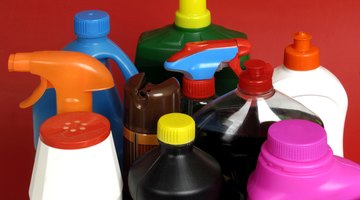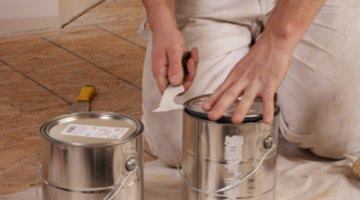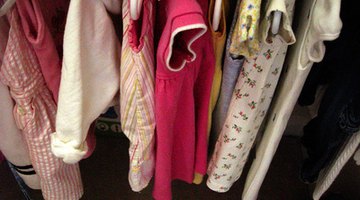Can the Smell of Burned Plastic Be Harmful to My Baby?
When temperatures are hot enough, plastic begins to melt, bubble and smoke, releasing a sharp, unpleasant odor. While the smell of burned plastic is often more unpleasant than dangerous, the vapors and soot that come from burning plastic are harmful. If a baby is exposed to such fumes, the fumes may affect her developing lungs and immune system, according to the Massachusetts Institute of Technology.
The Dangers of Burning Plastic
When plastic burns, it releases fumes from the original substances from which the plastic was made. Such substances include:
- sulfur dioxide
- heavy metals
- volatile organic compounds
- hydrochloric acid
- furans
- carbon monoxide
- particulates
- dioxins
The U.S. Environmental Protection Agency states that the toxins that burning plastics release could cause hormonal imbalances, visual damage and respiratory problems in children. In addition, many of the substances found in burning plastic are carcinogenic and adversely affect the lungs, skin and immune system.
Why the Smell Is Harmful

The Effects of Paint Fumes on Pregnancy
Learn More
Babies are more susceptible to the effects of toxins in burning plastics because their lungs, brain and immune system are still developing, the blood-brain barrier is porous and their young bodies can’t filter toxins as efficiently as that of a healthy adult body, according to the University of Illinois at Chicago. Exposure can lead to cognitive and physical developmental delays, an altered immune system and impaired learning. The Women in Europe for a Common Future website states that at a high level, the fumes released from burning plastic can damage mucous membranes and the eyes, and cause symptoms such as weakness, fatigue and headaches.
Dangers to a Fetus
A developing fetus breathes the same air as his mother. When a pregnant woman inhales the vapors and smoke emitted by burning plastic, the chemicals can affect her unborn baby. The World Health Organization states that a developing fetus is more sensitive to the effects of dioxin exposure because the organs develop quickly. Other toxins found in burning plastic, such as hexachlorobenzene, can harm a fetus and cause liver and kidney damage, according to the Environmental Protection Agency. If you are pregnant and have inhaled smoke from burning plastic, speak to your physician.
Avoiding the Smell of Burned Plastic

Flea Spray & Pregnancy
Learn More
To avoid the smell of burned or burning plastic in your home, never place plastic objects in the fireplace or in an outdoor burn pile. Always follow the manufacturer’s instructions regarding microwaving food in plastic containers. Securely place dishwasher-safe plastic items in the dishwasher so that they don’t fall onto the heating element at the bottom of the appliance. In addition, never place plastic objects on a stove top or in an oven. If plastic accidentally burns and you know the source of the problem, turn off the respective appliance or extinguish the flames, if it is safe to do so. If it is safe to be in your home, open the windows and turn on the exhaust fans, and take your baby to a different area of the house or outside until the smell subsides. When you smell burning plastic in your home, but don’t know its origin, go outside with your baby and call the fire department with a cell phone or a neighbor’s telephone.
Related Articles
- Saskatchewan Ministry of Environment: Health and Environmental Effects of Burning Waste Plastics
- National Institutes of Health: Dioxins
- Women in Europe for a Common Future: Dangerous Health Effects of Home Burning of Plastics and Waste
- World Health Organization: Dioxins and their Effects on Human Health
- Energy Justice Network: Dioxins & Furans: The Most Toxic Chemicals Known to Science











